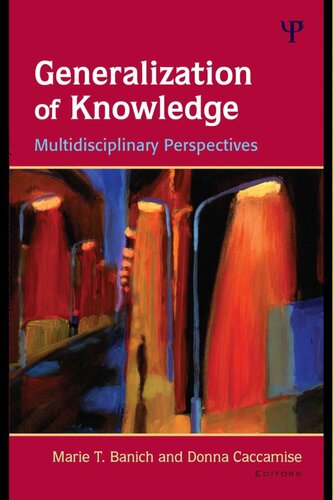

Most ebook files are in PDF format, so you can easily read them using various software such as Foxit Reader or directly on the Google Chrome browser.
Some ebook files are released by publishers in other formats such as .awz, .mobi, .epub, .fb2, etc. You may need to install specific software to read these formats on mobile/PC, such as Calibre.
Please read the tutorial at this link: https://ebookbell.com/faq
We offer FREE conversion to the popular formats you request; however, this may take some time. Therefore, right after payment, please email us, and we will try to provide the service as quickly as possible.
For some exceptional file formats or broken links (if any), please refrain from opening any disputes. Instead, email us first, and we will try to assist within a maximum of 6 hours.
EbookBell Team

4.0
76 reviewsWhile the notion of generalization fits prominently into cognitive theories of learning, there is surprisingly little research literature that takes an overview of the issue from a broad multifaceted perspective. This volume remedies this by taking a multidisciplinary perspective on generalization of knowledge from several fields associated with Cognitive Science, including Cognitive Neuroscience, Computer Science, Education, Linguistics, Developmental Science, and Speech, Language and Hearing Sciences.
Researchers from each perspective explain how their field defines generalization - and what practices, representations, processes, and systems in their field support generalization. They also examine when generalization is detrimental or not needed. A principal aim is the identification of general principles about generalization that can be derived from triangulation across different disciplines and approaches.
Collectively, the contributors’ multidisciplinary approaches to generalization provide new insights into this concept that will, in turn, inform future research into theory and application, including tutoring, assistive technology, and endeavors involving collaboration and distributed cognition.